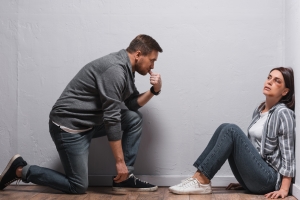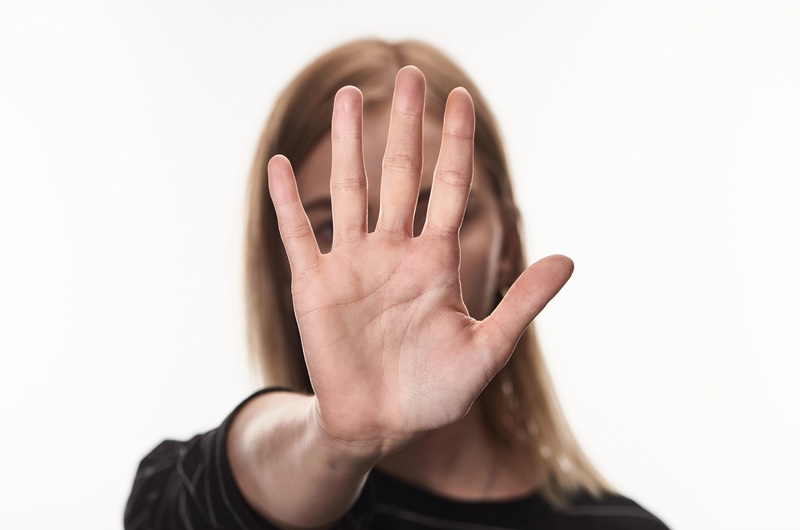Can I File VAWA Self-Petition Without A Lawyer?
This article discusses the Violence Against Women Act or VAWA self-petitions. It serves as a guide to help you understand the procedure and determine if filing without legal assistance is possible. It covers the qualifying requirements, required papers, and benefits of getting legal aid. Read on to know the ins and outs of the self-petition process and make educated decisions.

What Is VAWA?
VAWA stands for Violence Against Women Act. It is a historic piece of legislation adopted in the United States in 1994 to address and prevent domestic abuse, sexual assault, stalking, and other violence. It acknowledges that these kinds of violence predominantly affect abused individuals. Thus, it strives to provide victims with help, resources, and legal safeguards.
This act primarily aims to strengthen the criminal justice response to domestic abuse and sexual assault. Moreover, it aims to improve victim services, encourage community-based initiatives, and raise public awareness. The act funds various programs and services, such as crisis hotlines, shelters, guidance services, legal support, and training for service providers and law enforcement.
One of its components is establishing an avenue for immigrants experiencing domestic violence or abuse. It serves as a platform for those seeking refuge and immigration benefits. The self-petition procedure enables them to apply for a green card or permanent residency alone. It allows them to submit a petition without the help of their spouse, parent, or child who is a U.S. citizen or a lawful permanent resident (LPR).
Can You File A VAWA Self-Petition Without A Lawyer?
A VAWA self-petition allows individuals seeking legal status in the United States to file alone by applying to the U.S. Citizenship and Immigration Service (USCIS). It implies you can apply for permanent residency in the United States without your perpetrator’s knowledge. The Immigration and Nationality Act (INA) permits an abused immigrant spouse, child, or parent to file a petition. The abuser must be an American citizen, LPR, or a green card holder to be eligible for self-petition.
Individuals qualified to apply for this status are victims of abuse by a U.S. citizen spouse, parent, or child. It also includes those of abusive spouses or parents who are LPRs. You can also file a petition on behalf of your abused kid.
Knowing the concept of this self-petition and its significance can help you understand better the steps involved in the process. You will get a rundown of the procedures. It includes gathering the required paperwork and submitting your petition to the U.S. Immigration and Citizenship Services (USCIS).
The Application Process
To begin the self-petition procedure, you must accomplish Form I-360 or the Petition for Amerasian, Widow(er), or Special Immigrant Form. If you are in the United States while applying for status adjustment, you must submit Form I-485. It is known as the Application to Register Permanent Residence or Adjust Status.
If you are outside the United States, you must complete Form I-360 and work alongside your local embassy or consulate. This application procedure is known as consular processing. Once you have submitted your accomplished Form I-360, USCIS will send it to the National Visa Center (NVC). After which, the agency forwards it to your local U.S. consulate or embassy and advises you of the next steps.
Spouses of U.S. citizens can combine the two processes and file both forms simultaneously or together. You can file Form I-485 once your priority date takes effect without waiting for USCIS to approve the I-360 first.
You are not required to complete all the fields in the form if you are a spouse of a U.S. citizen or an LPR facing domestic abuse. You can skip some parts as they are for Amerasians, widows, Special Immigrant Juvenile Court Dependents, and Special Immigrant Religious Workers.
Although Form I-360 is straightforward, there are some details to consider. For instance, if you still live with your abuser, you can use another person’s address in the United States to protect yourself. You will receive all notices without your abusive sponsor knowing your petition by entering a different address.
What Happens After Submitting A Self-Petition?
After you file your self-petition, USCIS will mail you a receipt notification to the address shown on your application. It specifies the date USCIS received your petition.
After USCIS reviews your application, they will decide whether or not to send you an “establishment of prima facie case” notification. The basis of their decision lies in the authenticity of the information you provided. However, it does not officially grant you a VAWA status but already entitles you to some benefits based on your state’s laws.
Once your petition is formally approved, USCIS will notify you. Take note that approval does not guarantee you a green card. It merely permits you to apply for a green card using Form I-485. The processing periods vary depending on your USCIS field office, the perpetrator’s status, and the availability of the immigrant visa.
The good thing about this self-petition is you can do it discreetly. You do not have to inform your abuser to protect yourself from further harm.
How To Apply Without The Knowledge Of Your Abuser?
 If you are concerned about your safety, the government wants to ensure your abuser will not know you are applying for VAWA status. They guarantee victims have secure access to their rights. They will never alert your abuser about your intention to apply for citizenship or LPR status if you self-petition.
If you are concerned about your safety, the government wants to ensure your abuser will not know you are applying for VAWA status. They guarantee victims have secure access to their rights. They will never alert your abuser about your intention to apply for citizenship or LPR status if you self-petition.
The USCIS will send you multiple notifications throughout the application process. Use user accounts, phone numbers, email addresses, and mailing addresses only you or someone you trust have access to. If you live with your perpetrator, you can ask a close friend or relative to keep your information safe. You can route any mail to the postal address of your close contact. Take this precaution if you are concerned your abuser will learn about your application through communications.
Although employing an immigration lawyer is not a requirement, it is in the applicant’s optimal interest to do so. The petition procedure includes two forms, but each needs evidentiary materials. If you fail to submit some documents for either application, expect a delay or refusal of your application. In this case, engaging a VAWA immigration lawyer can be advantageous. They can guide and assist you in accurately gathering all the necessary paperwork.
Why File A Petition With An Immigration Attorney
While you can file a self-petition without the help of an immigration lawyer, getting one gives you an advantage. It increases your chance of a successful application. The self-petition procedure can be complicated, and having an experienced legal counsel can ensure you a correctly drafted application.
When submitting a self-petition, hiring a VAWA lawyer could offer various benefits, and they are as follows:
- An immigration attorney can thoroughly explain the complicated legal structure of a VAWA petition.
- They ensure you meet all requirements.
- They can walk you through your case, enumerate the strengths of your evidence, and assist you in gathering any missing documents.
- An attorney can advise you on the most appropriate strategy for your case, increasing your chances of victory.
- They can help you present the facts of your case, organize your statements, and address any issues or red flags.
Remember that each case is unique, and speaking with an immigration attorney will enable you to receive guidance based on your situation. They can evaluate your situation, present you with alternatives, and assist you through the self-petition procedure, giving you a higher success probability.
What Are The Benefits Of Working With A VAWA Attorney?
An immigration attorney guides and represents individuals seeking protection through a VAWA self-petition. With their experience and skills, they know how to go about each step of the application. Entrusting to them your case can make the process easier and less stressful.
Provides Legal Support
An attorney can represent you throughout your application and speak up for your rights before immigration officials. In addition, they offer assistance legally if your case faces obstacles or issues. They can communicate with the USCIS, guaranteeing the protection of your rights and the speedy processing of your application.
Stays Updated With Immigration Laws
A competent legal counsel remains updated with the evolving immigration rules and procedures. They can help you through any changes that might affect your case. It raises your chances of success and ensures your self-petition complies with all applicable legal criteria.
Provides Emotional Support
A legal professional can help reduce the anxiety and emotional strain attached to the self-petition process. They offer guidance and certainty at what can be a trying moment, creating a friendly and sympathetic environment.
The VAWA self-petitions give victims of domestic violence, abuse, and other offenses the ability to file for protection and immigration benefits individually. The procedure entails filling out paperwork, compiling supporting materials, and submitting the petition to the USCIS. While filing a self-petition without legal counsel is possible, doing so has numerous benefits. It includes a higher chance of success, proper guidance, and a better understanding of the procedure. You can confidently traverse the process with an immigration attorney. They can help you obtain a safe future and break free from abuse.
Contact A U.S. Immigration Attorney Today!
Categories
How To Find Us
What Our Clients Say
“This Lawfirm is great, very professional and helpful. I love that they are always in communication and always available for when you have questions . 100% recommended by me and my family. Thank you Lincoln-Goldfinch Law – Abogados de Inmigración”





